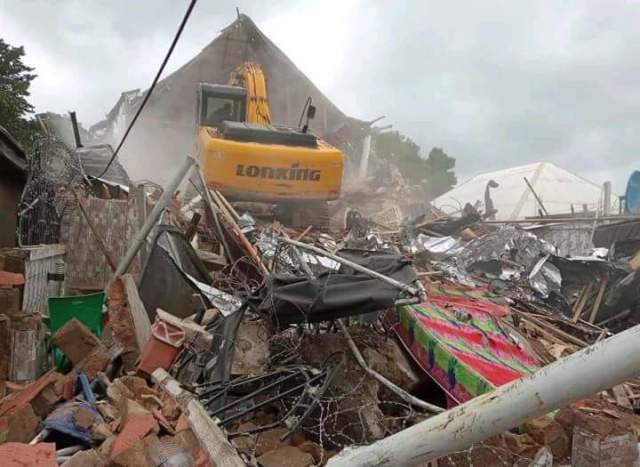There are no products in your shopping cart.
| 0 Items | £0.00 |


FRESH details have emerged about the contents of the proposed Nigerian infectious diseases bill currently being debated in the National Assembly revealing that it empowers the government to demolish any building in which an infection occurred.
A controversial piece of legislation drafted by the speaker of the Federal House of Representatives Hon Femi Gbajabiamila and two of his colleagues Hon Pascal Obi and Hon Tanko Sununu, it is officially known as the Control of Infectious Diseases Bill 2020. Its features include allowing the government to confiscate private property and converting them into isolation centres if the need arises.
Many civil society groups have described the bill as too Draconian and opposition to its passing is mounting. It has now emerged that the bill is even scarier than first thought as it will create a new legal framework to replace the National Quarantine Act of 2004 that empowers the federal government to demolish any house, hospital or care home where infected people have stayed.
In addition, the police would be able to arrest any individual suffering from an infectious disease, even without a warrant. Also, with a court order, the government will be able to destroy any building where there is an outbreak of any other infectious disease, including cholera, typhoid and dengue fever.
This bill also proposes introducing compulsory vaccination, with a N500,000 fine and six-month jail term for persons who violate the quarantine restriction or refuse to take vaccinations. Already, Nigeria's main opposition, the Peoples Democratic Party (PDP), has urged Hon Gbajabiamila to subject the bill to a public hearing, adding that the failure to do so raises suspicions of sinister objectives.
Clement Nwankwo, the director of Policy and Legal Advocacy Centre, added: ”A new law is needed but the powers are too sweeping. There’s a lot of powers in the bill, which could be used for political purposes.”
To make matters worse for the government, Dr Chikwe Ihekweazu, the director-general of the Nigeria Centre for Diseases Control (NCDC), said he was not involved in drafting the legislation. He added: “I’m personally not in favour of drafting a bill in the middle of a crisis.”